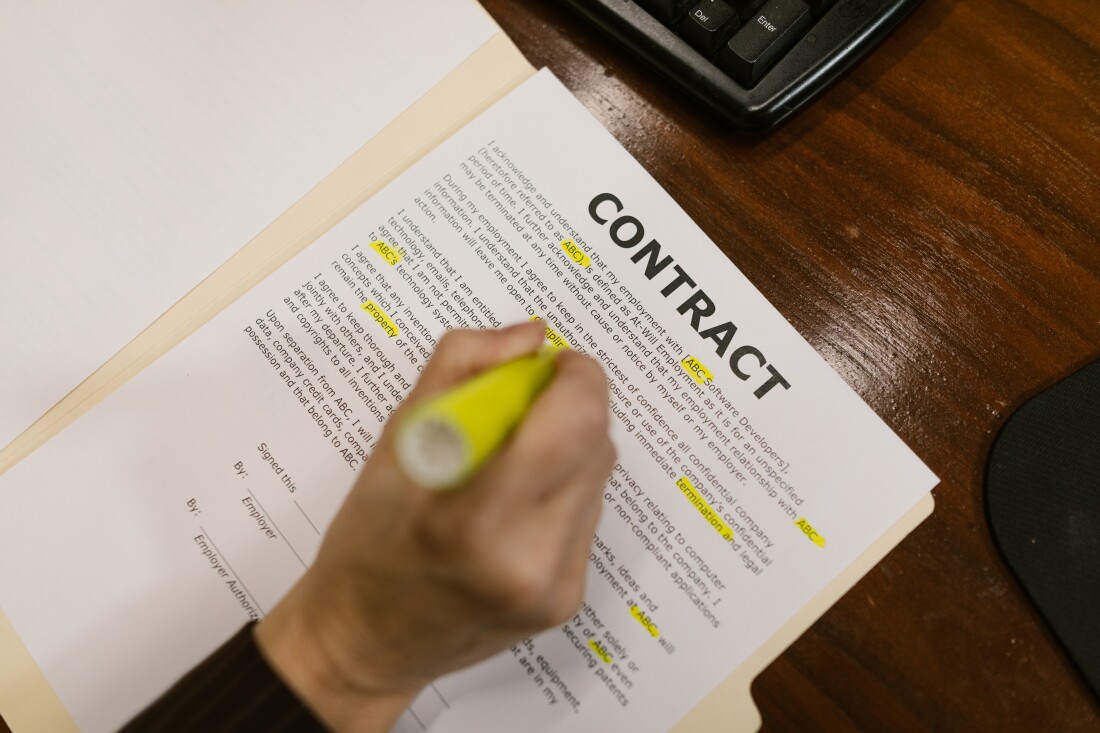Contact Us
Archives
Categories
- Corporate and Business Tax
- Small Business
- Tax Incentives
- Taxation
- Human Resource Department
- Non-exempt employees
- Horse Racing
- Horseracing Integrity and Safety Authority
- Employment Law
- Healthcare Regulation
- Hospitality and Tourism Law
- Income Tax
- Kentucky general assembly
- Legislation
- Legislative Developments
- Alcoholic Beverage Control Laws
- Hospitality
- Estate Planning
- Lease
- Small Claims
- Tenant
- Agriculture
- Banking
- Hemp
- Defense Attorneys
- Family Businesses
- Federal Election Campaign Act
- Insurance Defense
- Political Action Committee (PAC)
- Department of Labor ("DOL")
- Fair Labor Standards Act (FLSA)
- Equine law
- Kentucky Equine Liability
- House Bill 33
- Legal Insight and Litigation
- Bankruptcy
- Academy of Model Aeronautics
- Drones
- FAA Modernization Act of 2012
- Small UAS Rule
- Bad Faith Claims
- Insurance Coverage
- Kentucky Motor Vehicle Reparations Act
- Kentucky No Fault Insurance
- Mediation
- Mediation Services
- Personal Injury Protection
- Magnuson-Moss Warranty Act
- Warranty
- Corporate
- Diversity
- Dog owners
- Landlord
- Litigation
- Malicious Prosecution
- Municipal Liability
- Real Estate Law
- Business Entities
- Business Formation and Planning
When DIY Goes Wrong: When NOT to Do Your Own Legal Work
There’s an old adage that the person who represents themself in court has a fool for a client. While we are not here to add any insult to the injuries suffered by legal DIYers, that particular line of reasoning may prove instructive in more areas than just court. Legal agreements and transactions may seem simple enough to handle on one’s own, but they can often get complex in a hurry. There’s never a wrong time to consult an attorney, and doing so at the beginning of a transaction can save a mountain of headache at later stages.
While plenty of sites offer forms, questionnaires, and “advice” that claim to address your needs, their shortcomings are plentiful—and costly. Here are just five examples of legal situations in which pursuing DIY legal action may put you at risk.
Leases
 Leases may not seem like complex documents on the surface, but sloppy writing or negligent reading may result in problems for both landlords and tenants who take matters into their own hands. For landlords, writing a lease that accomplishes your goals and eliminates unwanted loopholes is no easy task—only an experienced attorney can ensure the legal viability of the contract and offer advice on how to improve it.
Leases may not seem like complex documents on the surface, but sloppy writing or negligent reading may result in problems for both landlords and tenants who take matters into their own hands. For landlords, writing a lease that accomplishes your goals and eliminates unwanted loopholes is no easy task—only an experienced attorney can ensure the legal viability of the contract and offer advice on how to improve it.
For tenants, it’s always a good idea to have a lawyer look over your lease before you sign—you may easily miss hidden caveats or requirements that would stand out starkly to the well-trained legal eye. An attorney’s advice will ensure that you know exactly what you’re affirming when you sign on the dotted line.
Evictions
As a landlord, you likely know the circumstances under which you are permitted to evict a tenant. What you may not know, however, is that different sets of circumstances require different eviction protocols under the law. An attorney can assist you in effectively implementing forcible detainers and other eviction-related proceedings.
For tenants facing eviction, having an attorney to represent your best interests can make a world of difference. Legal advice and representation can assist you in attaching the appropriate exhibits and protect you from revealing incriminating or unnecessary information that may put your tenancy at further risk.
DUI/BUI
This one may seem obvious, but it’s worth repeating—if you are facing charges for driving or boating while impaired, it’s important to call a lawyer right away. This is a situation in which it is especially important to have a skilled, experienced professional looking out for your interests.
Small Claims
 If a small claim is important to you, it is worth hiring or at least seeking the advice of an attorney. Without one, you will find yourself completely on your own—clerks and judges can’t and won’t offer you any help as you attempt to navigate the situation. Even though a mediator will bring legal experience and expertise to the matter, he or she will not be looking out for your personal interests. Enlisting an attorney’s help to file a formal complaint or answer may dramatically benefit your chances of settling the matter in your favor.
If a small claim is important to you, it is worth hiring or at least seeking the advice of an attorney. Without one, you will find yourself completely on your own—clerks and judges can’t and won’t offer you any help as you attempt to navigate the situation. Even though a mediator will bring legal experience and expertise to the matter, he or she will not be looking out for your personal interests. Enlisting an attorney’s help to file a formal complaint or answer may dramatically benefit your chances of settling the matter in your favor.
Estate Plans
One of the riskiest fields for DIY legal work is estate planning. When you attempt to plan an estate yourself, you may well wind up with no plan at all. Plug-and-chug will-writing forms only function for the very simplest estates—and even then, there’s no guarantee. Will writing language is required to be very specifically worded—one uncrossed t or undotted i could result in an unenforceable, intestate, or contested will. Additionally, amending a will is a complex legal process that requires a full understanding of estate law. What may seem like a simple change or addition is never so simple—an amendment made improperly will not only be itself ineffective, but it may render the entire document unenforceable and invalid, leaving the outcome of the execution on very uncertain footing. For peace of mind, always involve an attorney in estate planning to ensure that you craft a will that accomplishes your goals and provides for your loved ones.
There are plenty of things you can accomplish with a can-do attitude and a Google search—building a birdhouse, changing your car’s oil, baking a loaf of sourdough—but there’s no foolproof path to DIY legal success. Though you may feel like you’re saving time, money, and hassle by taking legal matters into your own hands, it’s more likely that you’ll create a more complicated and expensive situation for yourself. When in doubt in a legal situation, there’s only one thing you should do yourself: contact your McBrayer attorney.
 Addison M. Lowry is an Associate of McBrayer Law. Her practice centers on general civil litigation with a focus on insurance litigation. Ms. Lowry is in the firm's Lexington office and can be reached at alowry@mcbrayerfirm.com or at 859-231-8780, ext. 1227.
Addison M. Lowry is an Associate of McBrayer Law. Her practice centers on general civil litigation with a focus on insurance litigation. Ms. Lowry is in the firm's Lexington office and can be reached at alowry@mcbrayerfirm.com or at 859-231-8780, ext. 1227.
Services may be performed by others.
This article does not constitute legal advice.

